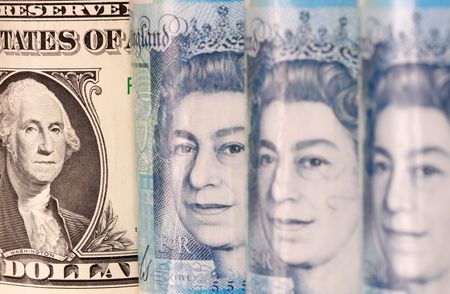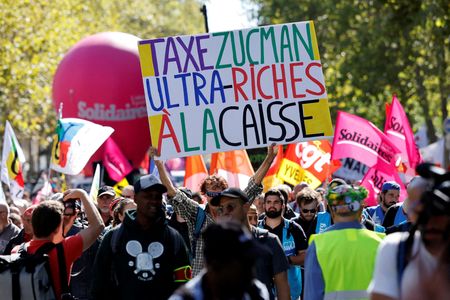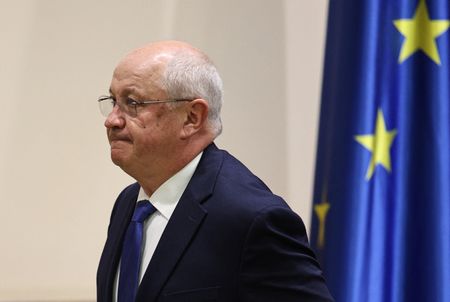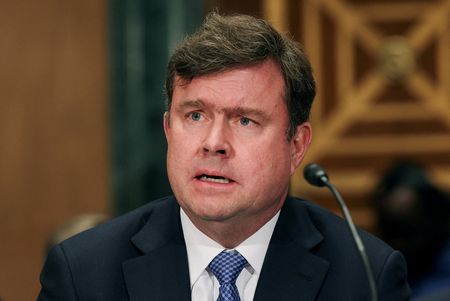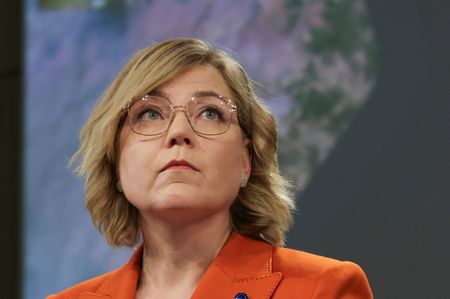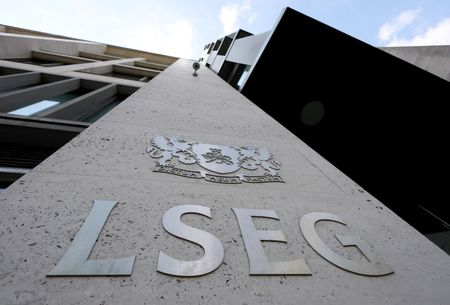By Amanda Cooper
LONDON (Reuters) -The pound headed for its worst performance against the dollar since July on Friday, while also wallowing at 2-1/2-year lows against the euro, reflecting growing investor nervousness about the outlook for UK government finances.
Sterling, which has fallen 2.3% in October, set for its biggest monthly decline since July and the second-largest this year, was down another 0.11% on the day at $1.3136, near its lowest since April.
British finance minister Rachel Reeves, who is dealing with political pressure this week over a rental dispute, is presenting her budget in late November.
Reeves already has very limited headroom, based on her own fiscal rules, with which to manoevre, when it comes to keeping Britain’s finances on track.
Expectations are mounting that she may be forced to break election pledges and hike some taxes after warnings official forecasts could show the economy is in a worse state than once thought.
UK gilts, which still carry a higher yield than the bonds of any other major economy, have rallied strongly this month, buoyed by investors betting on the Bank of England cutting interest rates sooner than previously thought, as metrics like inflation hold steady.
Money markets show traders think there is around a 45% chance the BOE lowers borrowing costs by a quarter point when it meets next week, compared with next to no chance just a couple of weeks ago.
According to IG strategist Chris Beauchamp, pricing is still cautious.
“This suggests significant upside for the pound if the BoE disappoints dovish expectations, but also room for a sharp move lower if policymakers signal more aggressive easing ahead,” he said.
“Next week’s decision is genuinely uncertain, making it one of the more consequential BoE meetings in recent memory,” he said.
Economists at Goldman Sachs changed their forecast for the BOE this week and now see a cut, compared with none previously.
Part of their rationale is Reeves’ crucial budget, which they think “will deliver a large, contractionary impulse to the economy.”
(Reporting by Amanda Cooper; Editing by Ros Russell)

